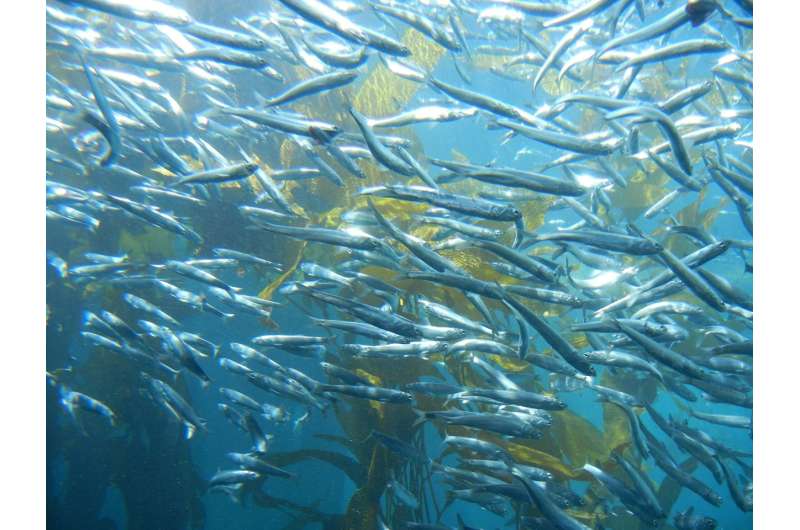Simple rules can help fishery managers cope with ecological complexity

To successfully manage fisheries, factors in the environment that affect fish—like food sources, predators and habitat—should be considered as part of a holistic management plan.
That approach is gaining traction in fisheries management, but there has been no broad-scale evaluation of whether considering these ecosystem factors makes any economic sense for the commercial fishing industry. In these often profitable and competitive markets, that question has lacked the evidence to rule one way or another.
A team of ecologists and economists has addressed that question in the first study to test whether real-life ecological interactions produce economic benefits for the fishing industry. The results were published online last week in the Proceedings of the National Academy of Sciences.
"Going into this, I shared the belief that because we know species are connected, ignoring that connection is potentially putting ecosystems in harm. What we really found was a much more nuanced benefit," said lead author Tim Essington, a University of Washington professor of aquatic and fishery sciences. "Rather than enhancing economic benefits, the holistic approaches to natural resource management are better viewed as a way to more equitably distribute risk and reward across different users."
The researchers found that economic benefits were minor when ecological interactions were factored into the equation. Instead, this ecosystem-based approach offers other benefits to the fishing industry—namely, a simple set of rules to avoid scenarios that could cause a worst-case outcome for fishes and their surrounding environments.
Most U.S. fisheries are managed by looking at the biology of the targeted fish species. Managers consider what the species' expected abundance is year to year and make decisions about how many can be caught each season. That process, however, doesn't account for ecosystem factors such as predators, habitat or temperature that also can influence a species' abundance. This can lead to an incorrect estimate of the number of fish that can be caught sustainably.
To test whether a holistic approach helps or hurts the industry from an economic perspective, the researchers looked at an actual predator-prey relationship between two fisheries, cod and herring. Separately, both fisheries are among the largest and most profitable in the world.
The researchers created a model to represent the interactions of the two fisheries, then used the model to look at the likely economic outcomes of 16 scenarios. For each scenario, cod and herring began at either high or low abundance, and the linkage between the two species varied from no interaction, to one species eating the other, or the other's eggs. The researchers then calculated the fishing strategy that would lead to the maximum economic value under each scenario.
A final step was to ask what would happen if managers took action based on inaccurate information about the relationship between the species. This was important to consider because it is common to have uncertainty about ecosystem relationships.
"What we were trying to capture was the idea that we often have to make decisions about natural resources in complex linkage systems where we don't know the nature or magnitude of the linkages," Essington said.
Their analysis found that, in most of the scenarios, ecosystem information (the predator-prey interactions) made very little difference from an economic standpoint. When cod abundance was low, however, the potential for economic losses was substantial, particularly for the cod fishery.
For example, in scenarios with low cod and high herring populations, the value of the two fisheries combined could decline by as much as 15 percent. This impact fell mainly on the cod industry, which shows that some fishing groups are more vulnerable than others to economic losses.
Overall, ecosystem factors did not have a large effect on the profitability of fisheries, but they did offer helpful information about avoiding worst-case scenarios, and bolstered the argument for maintaining fisheries in "safe zones"—scenarios where there are low risks of major economic losses from something going badly in the ecosystem. The findings provide a framework for managers to identify the safe zones specific to each fishery.
"Most importantly, this study shows that one doesn't need to know all of the ecological intricacies to have good ecological and economic outcomes," Essington said. "It's about simplicity, and the idea that we don't have to have complex management systems to deal with complex ecosystems."
More information: Timothy E. Essington et al, Economic value of ecological information in ecosystem-based natural resource management depends on exploitation history, Proceedings of the National Academy of Sciences (2018). DOI: 10.1073/pnas.1716858115
Journal information: Proceedings of the National Academy of Sciences
Provided by University of Washington



















